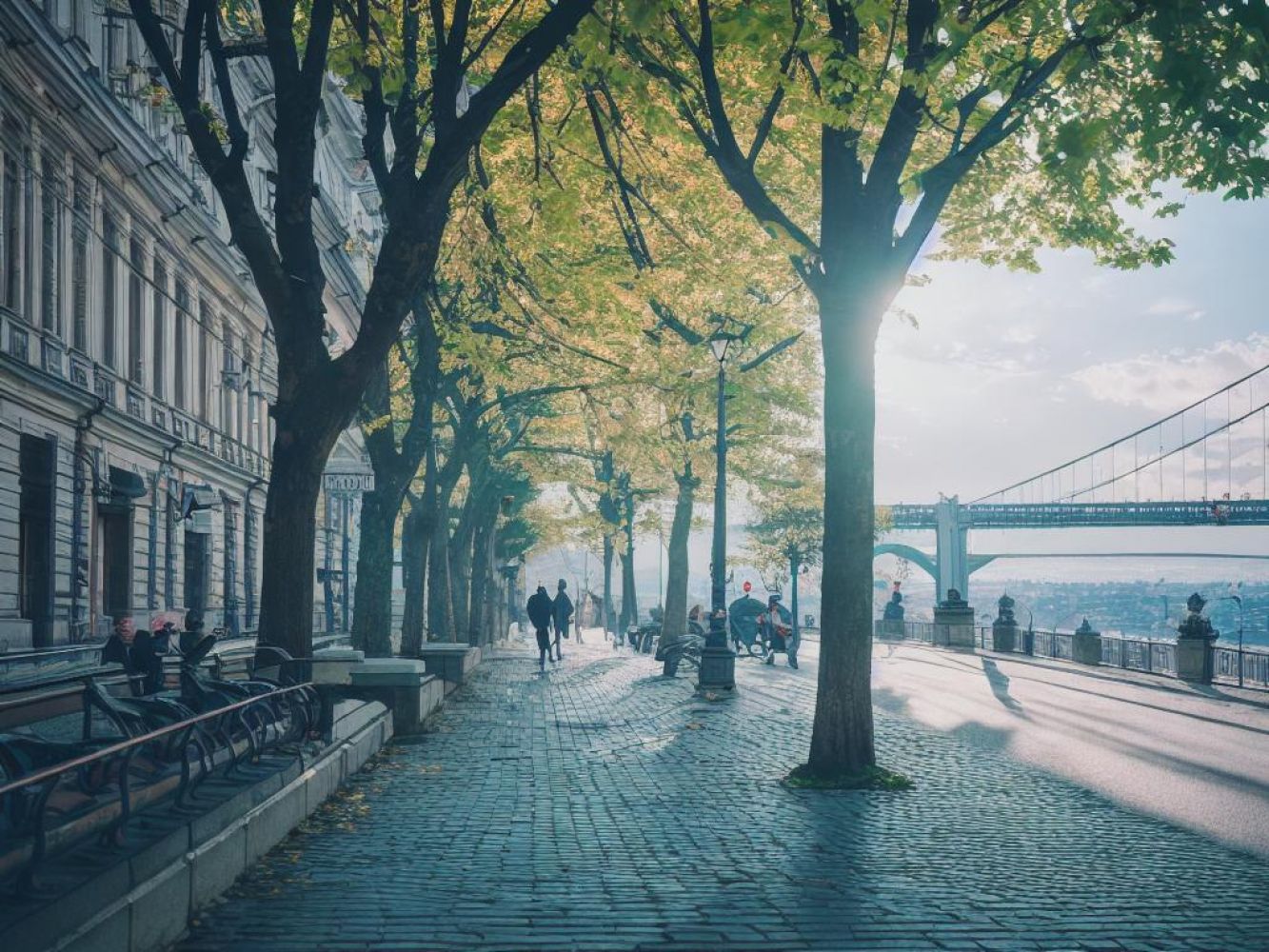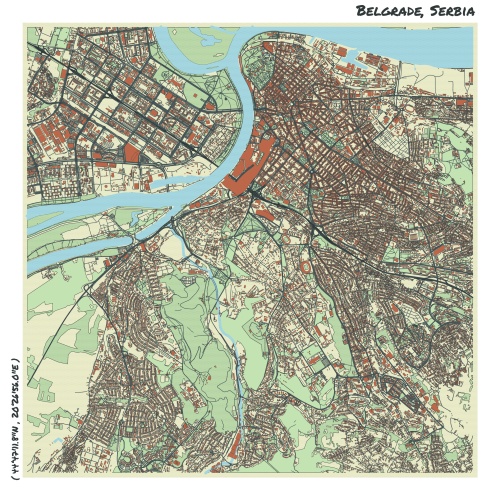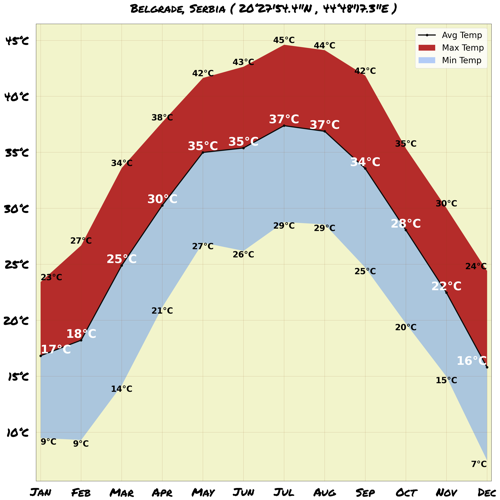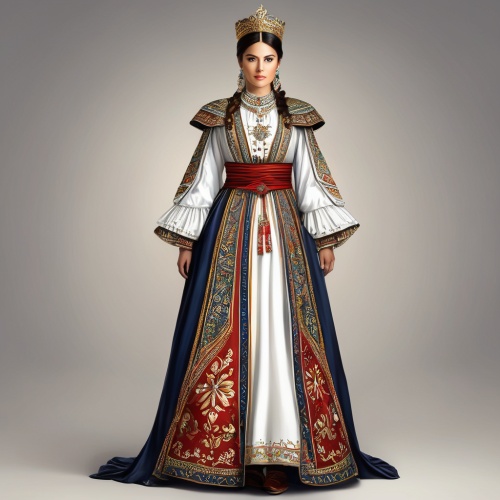Understand
Belgrade, the capital of Serbia, is a bustling city with a population of approximately 1.7 million people. It is situated at the confluence of two major European rivers, the Sava and the Danube. With a history dating back to the 4th century BC, Belgrade offers a journey through time. The city's roots can be traced to the Celtic tribes who settled here centuries ago. Over the years, it became the Roman city of Singidunum, and traces of its ancient past can still be found, particularly at the Kalemegdan Fortress. Throughout the Middle Ages, Belgrade shifted between the Kingdom of Hungary and the Serbian Despotate until it fell under Ottoman rule in 1521. Belgrade's destiny continued to change hands until Serbia gained independence in 1878. It became the capital of the Kingdom of Serbs, Croats, and Slovenes (later known as Yugoslavia). During the tumultuous years of the World Wars, Belgrade witnessed the rise and fall of different regimes, including occupation by the Nazis and subsequent liberation by Yugoslav and Soviet forces. Following the war, Belgrade became the capital of communist Yugoslavia under Marshal Josip Broz Tito's leadership. Despite not aligning with the Eastern Bloc, the city became a center of political, economic, and cultural significance in the Balkans. The breakup of Yugoslavia led to the formation of new republics, and Belgrade once again faced turbulent times. It was heavily bombed during the NATO intervention in 1999 but emerged as the capital of the independent Republic of Serbia in 2006. Belgrade's complex history and exposure to various influences can be witnessed in its unique architecture and culture. The city blends Austrian and Turkish elements, alongside remnants of its communist past. However, Belgrade possesses its own distinct spirit, characterized by a vibrant cafe culture, lively nightlife, and a Mediterranean flair. While Belgrade may not be as ethnically diverse as some European cities, it is home to minority communities such as Roma and Chinese, as well as individuals from other former Yugoslav republics. Additionally, a small expat community contributes to the city's cosmopolitan atmosphere. The city's cultural scene is vibrant, with a growing number of international events taking place, particularly during the spring and summer months. Local arts and cultural organizations, as well as foreign embassies and cultural centers, organize these events, enhancing Belgrade's reputation as a cultural hotspot. Experience the energy of a city rediscovering its tourism potential in Belgrade.
Map & Climate
Popular Foods
 Cevapi - Cevapi are grilled, minced meat patties typically made from beef, veal, or a mix of both. They are seasoned with a blend of spices, including paprika, garlic, and black pepper, and served in a flatbread called somun, accompanied by raw onions, ajvar (a red pepper and eggplant spread), and sour cream.
Cevapi - Cevapi are grilled, minced meat patties typically made from beef, veal, or a mix of both. They are seasoned with a blend of spices, including paprika, garlic, and black pepper, and served in a flatbread called somun, accompanied by raw onions, ajvar (a red pepper and eggplant spread), and sour cream. Gibanica - Gibanica is a traditional Serbian pastry made from layers of
Gibanica - Gibanica is a traditional Serbian pastry made from layers of  Drnićki jogurt - Drnićki jogurt, also known as Drnički kiselo mlijeko, is a traditional Serbian yogurt originating from the town of Drniš in the Lika region. This thick, tart yogurt is made using bacteria-rich sheep's milk or a combination of sheep's and cow's milk. It is often enjoyed as a refreshing snack, paired with honey, fruit, or nuts.
Drnićki jogurt - Drnićki jogurt, also known as Drnički kiselo mlijeko, is a traditional Serbian yogurt originating from the town of Drniš in the Lika region. This thick, tart yogurt is made using bacteria-rich sheep's milk or a combination of sheep's and cow's milk. It is often enjoyed as a refreshing snack, paired with honey, fruit, or nuts.




Comments
NO COMMENTS